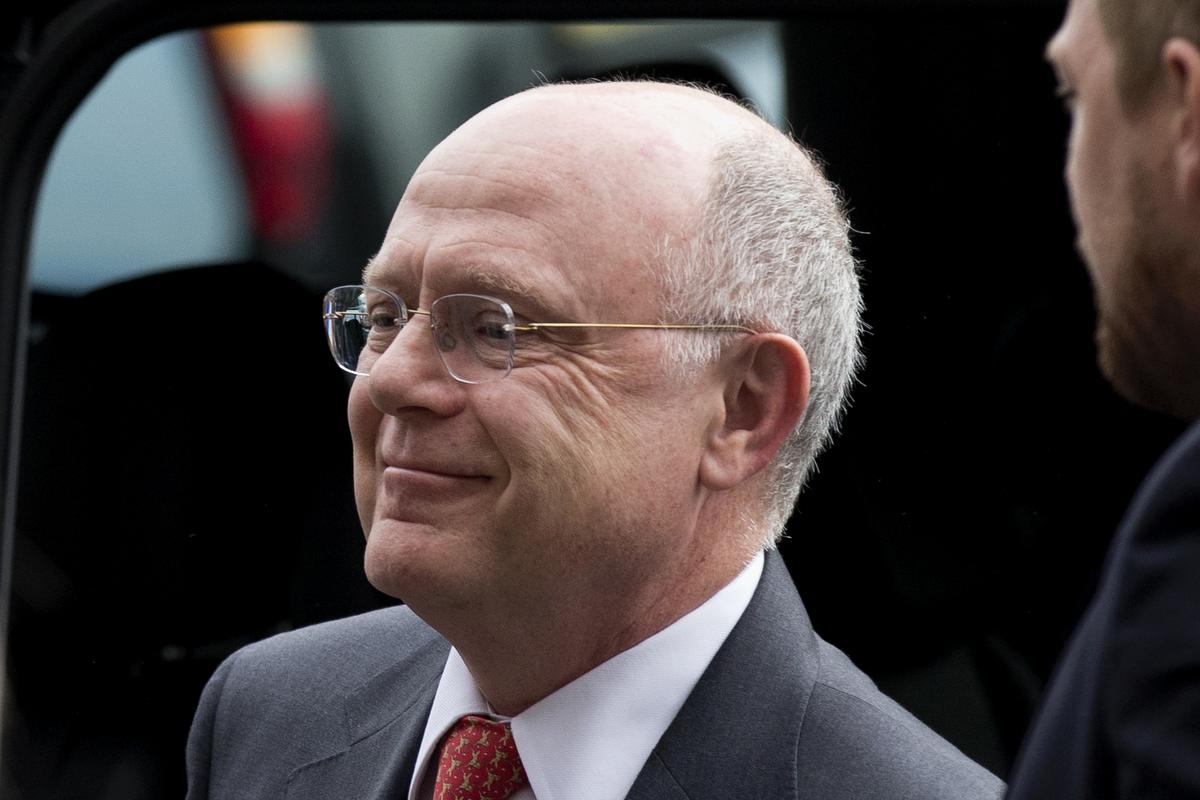
Ian Read. Source: Matt Dunham, AP
As President-elect Donald Trump was getting ready for Inauguration Day in New York, across the ocean, Pfizer CEO Ian Read was dispelling Trump’s remarks that pharma firms are “getting away with murder.”
“Most of the problem of reputation is coming from those that I don’t consider part of the ethical pharmaceutical business,” Read said during the World Economic Forum in Davis, Switzerland on Tuesday, referring to Mylan, former Turing Pharmaceuticals CEO Martin Shkreli and Valeant Pharmaceuticals by name.
Read was reacting to Trump’s remarks at his first press conference since the election last week, when he told reporters that pharma companies are “getting away with murder” with what they charge the government for some drugs, and he promised that would change once he takes office.
According to Read, the “ethical industry” he knows is nothing like notorious ex-CEO Shkreli’s work and certainly isn’t “getting away with murder,” as Trump claims.
Read said that a “terribly complicated and not transparent” healthcare system in the U.S. has led to the public’s distrust in pharma. He added that in other parts of the world, like Asia or Latin America, trust in drugmakers is much higher.
The Pfizer CEO said part of the problem is perception. The “ethical” industry does research, prices responsibly and seeks to recover its R&D costs. He added that another segment of the pharma business doesn’t do research, and that sector has done a great deal to scar public opinion.
In response to Trump vowing to lower drug prices for consumers, Read said what Trump and others don’t understand is that good drugs cost a lot of money to make.
“The pill is not the point,” he said. It’s just a “delivery mechanism for knowledge” to cure a disease or sickness. The pill is the end point of a long process of research and development, and those things cost money.
Read said Trump may also not realize that the U.S. only spends 2 percent of its GDP on pharmaceuticals, compared to 1.5 percent or less for other OECD countries. But that extra half-point of spending adds up to a $1.6 trillion GDP contribution from the drug industry, according to CNBC.
Since the notorious Turing Pharma move to raise the price of Daraprim times 56 (from $13.50 to $750 per pill), companies such as Mylan and Valeant have been subjected to investigations and many negative headlines over their own price hikes.
Filed Under: Drug Discovery




